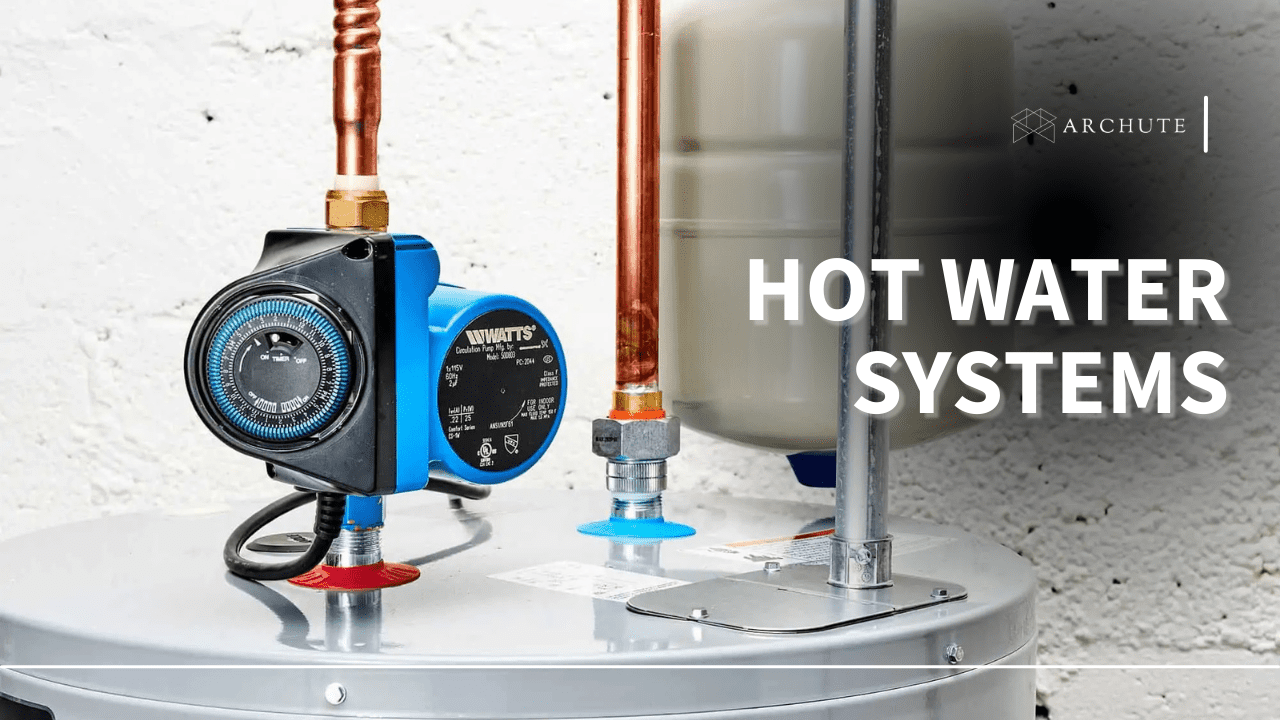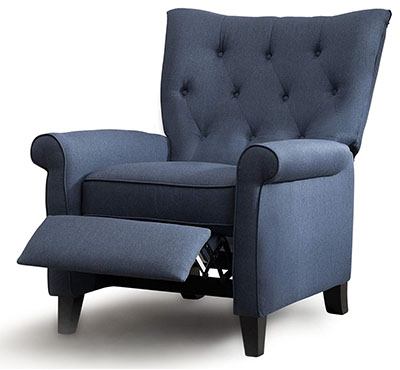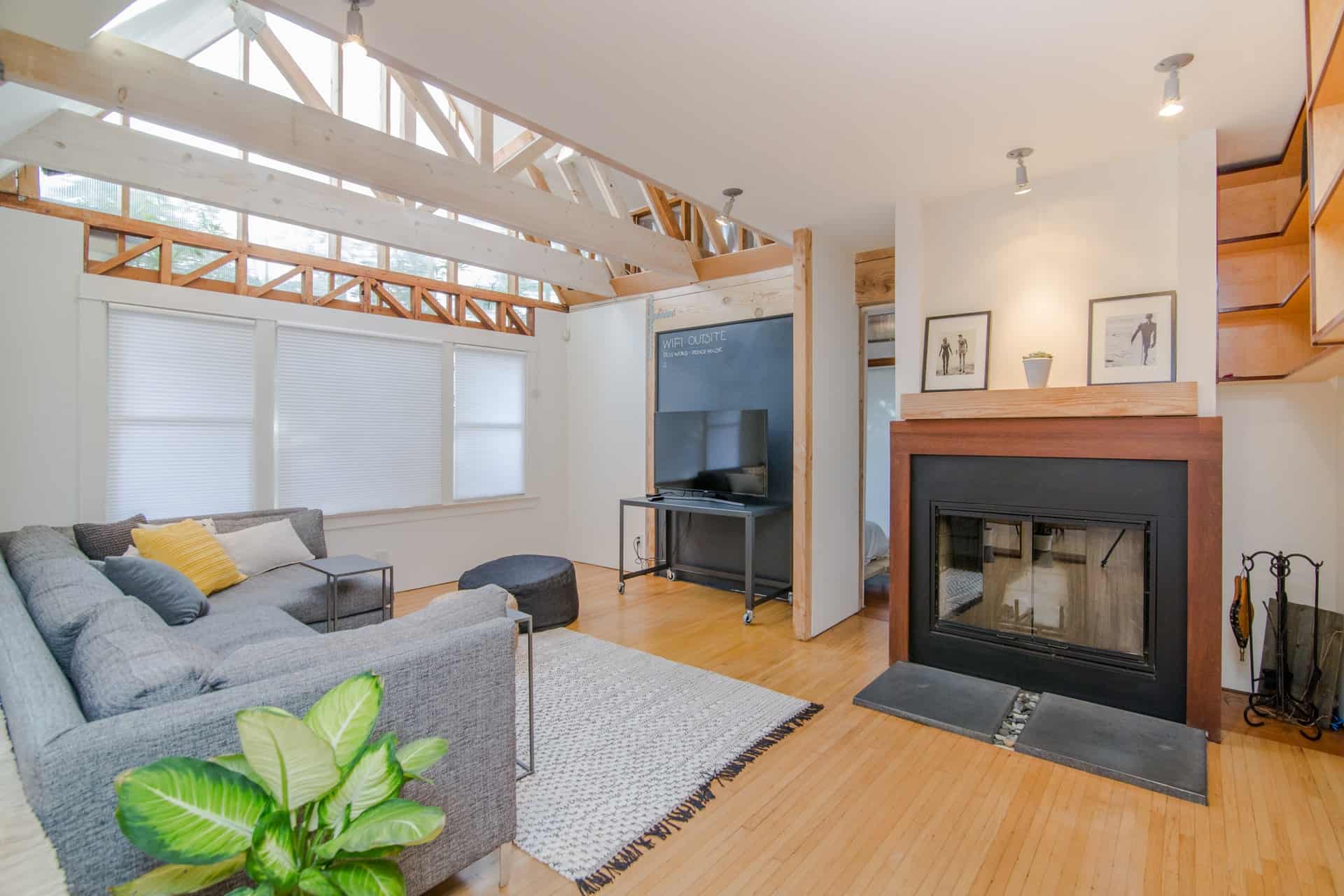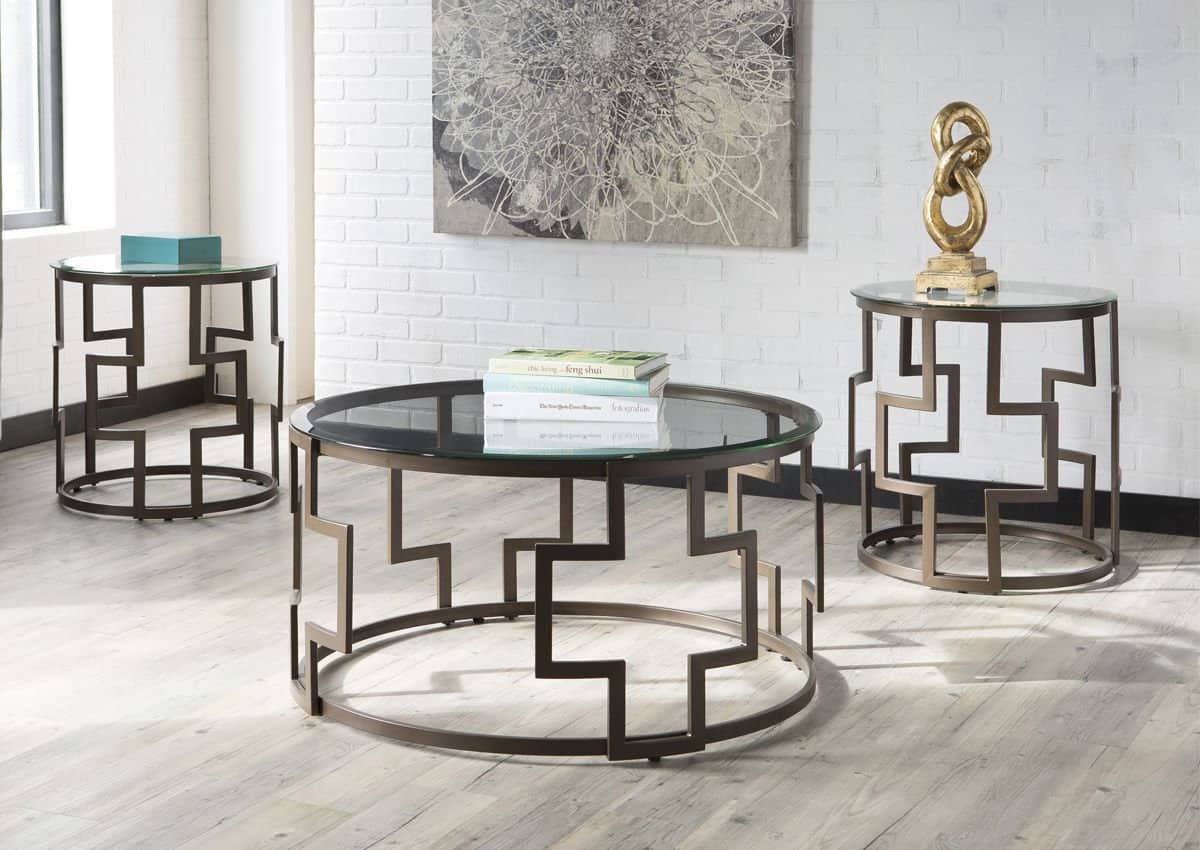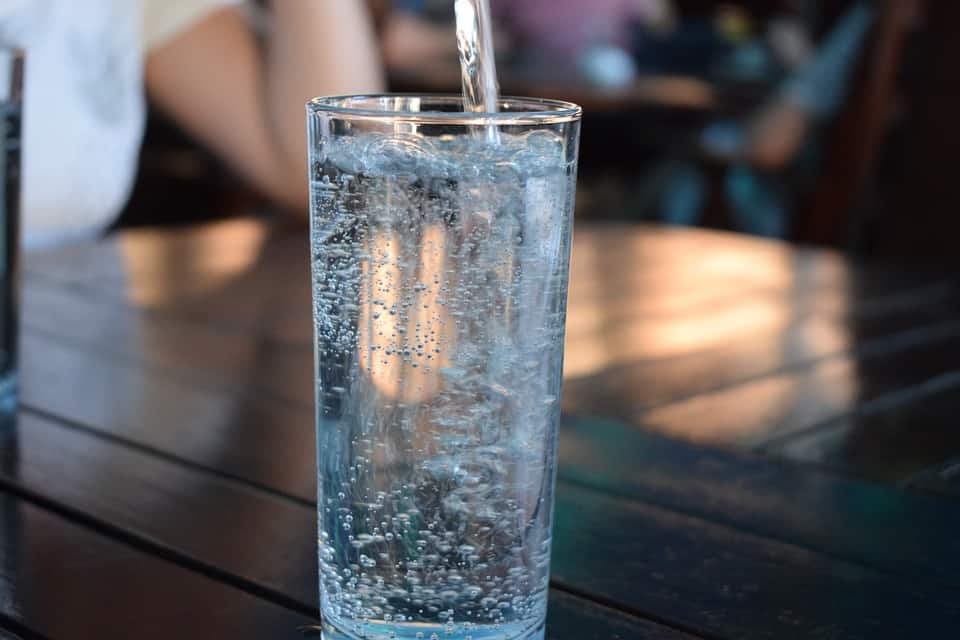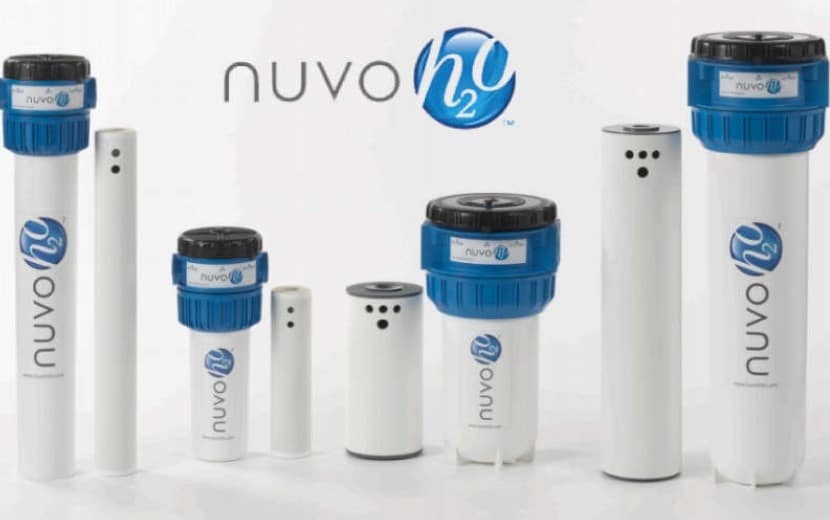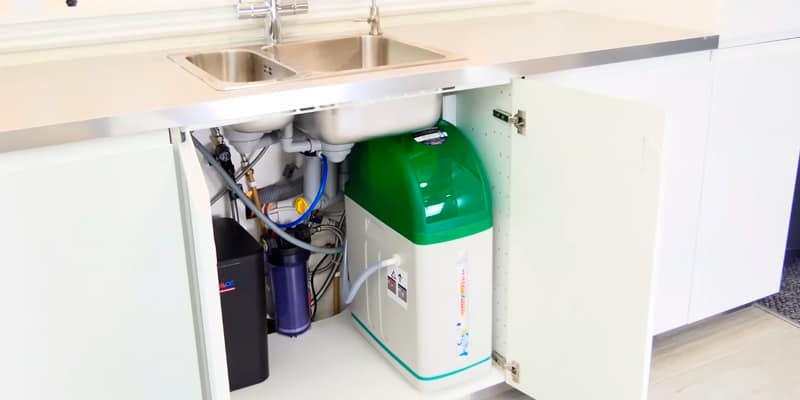Water heater’s another necessity we don’t think twice about in our everyday lives. Each time we come from work after a hectic day at the workplace we walk into the shower and the warm water washes our fatigue away.
Have you ever sat down and thought about the process through which you are delivered hot water? In other words, have you attempted to identify procedures of hot water systems, how they operate, and the advantages of employing them?
In this beginner’s guide on hot water systems, we are going to speak with leading hot water system experts. We are specifically going to discuss the three main points-
-
- The different types of water heating systems available in the market
-
- Significant benefits of having hot water systems in your house
-
- Challenges that you might have to face on hot water systems in your house
If you want a new installation in your home, this guide will help you address many of your questions.
What Is a Hot Water System?
The first thing you should understand when it comes to hot water system is the fact that hot water is one of the most consumed in a typical residential home. Statistically, it has been discovered that 23% energy in a house is consumed by hot water systems.
Firstly, there is the main storage tank where the normal water is heated and the hot water is distributed round the house through the pipes. The following are some important parts of a hot water system-
-
- Anti-corrosion anode rods
-
- Cold water shut-off valve
-
- Inlet and outlet pipes
-
- Temperature pressure relief valve
-
- Operating controls for the thermostat
-
- Drain valve
-
- Standard tank (sizes of 40, 50, 60, 70, 80, and even 120 gallons)
Homeowners should note that according to experts, there are three main places where you should be installing and setting up your hot water system; the basement, garage, or outside a shed.
Most governments have regulated that the system should be placed facing the wall on one side, towards a corner part. This allows for opening up space and properly positioning the fuel. You don’t want to keep gas cylinders, oil canisters, or other flammable components near the hot water systems.
Different Types of Hot Water Systems in the Average Household
When it comes to the installation of hot water systems, homeowners are often confused regarding what would be best for them. In this section, we are going to list down the different types of hot water systems that can be installed in a household-
1. Electric
An electric hot water system works by drawing electric power from your home’s electrical system and heating water. Although this is easier to install as it is highly demanded and almost every home has this, it is rather costly to maintain in the long run because the energy costs begin to rise as the system gets old. It is also recognized by most companies that offer installation services.

Image source: popularmechanics.com
a) Point of use water heaters
On-demand gas water heaters heat water only for a single plumbing fixture– the kitchen sink for instance or the shower. Tank point-of-use heaters are designed to have a small storage tank to hold a limited quantity of hot water at any one time. However, it is worth mentioning that, tankless point of use heaters are perfect for showers. This is because when taking shower, you do not have to guess if water is still hot or not as it is always hot and in a sufficient amount..
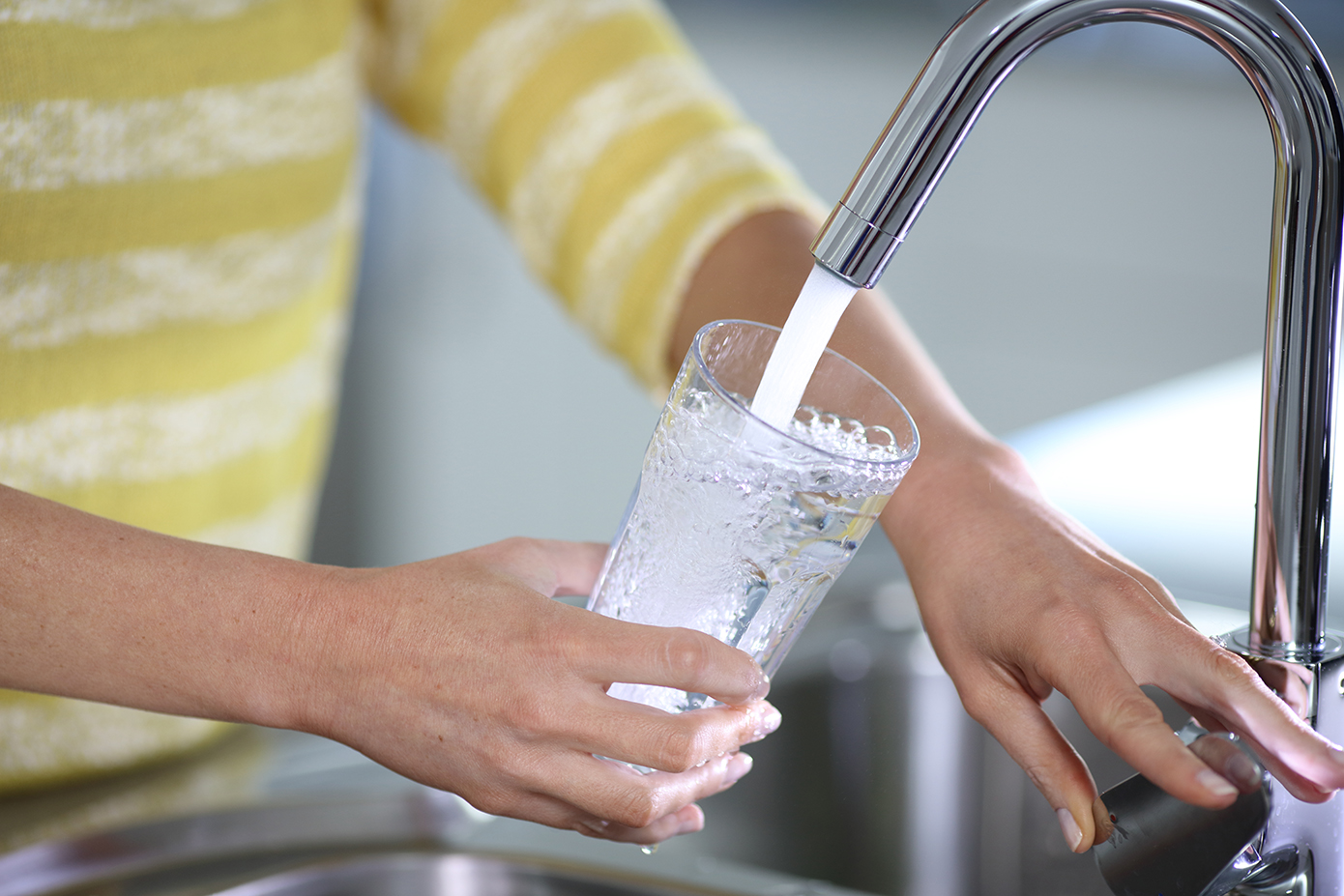
Image source: unitywater.com
Tank water heaters are inexpensive and occupy very little space at the point of use. They can be installed even under the sink if needed. The major disadvantage is that most of the time they are not as efficient as the conventional water heaters.
b) Tankless water heater
A tankless water heater is usually small; it is roughly half the size of a traditional water heater tank. This feature makes them the best option to install if you have a small apartment or townhouse. They are designed to heat water in a short time as they work by passing water over heated coils to supply hot water.

Image source: waterheaterleakinginfo.com
There are also two types of water heaters, the tankless water heater which can be electric or a natural gas. Tankless heaters do not use energy to heat and reheat the water trapped in a tank, and this makes them energy efficient. When it comes to tankless water heaters, both the gas and the electric models are very efficient in terms of energy consumption.
A tankless water heater supplies water on demand and the water is heated on its way to the showerhead. Since they do not store water, electric tankless water heaters occupy considerably less space and are more energy saving. However, they are rather expensive to purchase and put up.
c) Tank water heaters
Tank water heaters have a heating device and a water storage tank that holds water until you require it. It is one of the cheapest in the market. A tank water heater can either be a gas or electric water heater.
:max_bytes(150000):strip_icc()/GettyImages-1322406919-df33c24df1e74e99a41c95ee982daee9.jpg)
Image source: thespruce.com
After having heated the water inside the tank, the heater ceases to operate until the water has all been used or cools down to the specified temperature.
2. Solar
Next, you have the latest technological innovations that are run by solar energy. While the one-time installation costs on this might seem to be on the higher side, over the long run, you end up paying nothing by way of energy electricity charges.
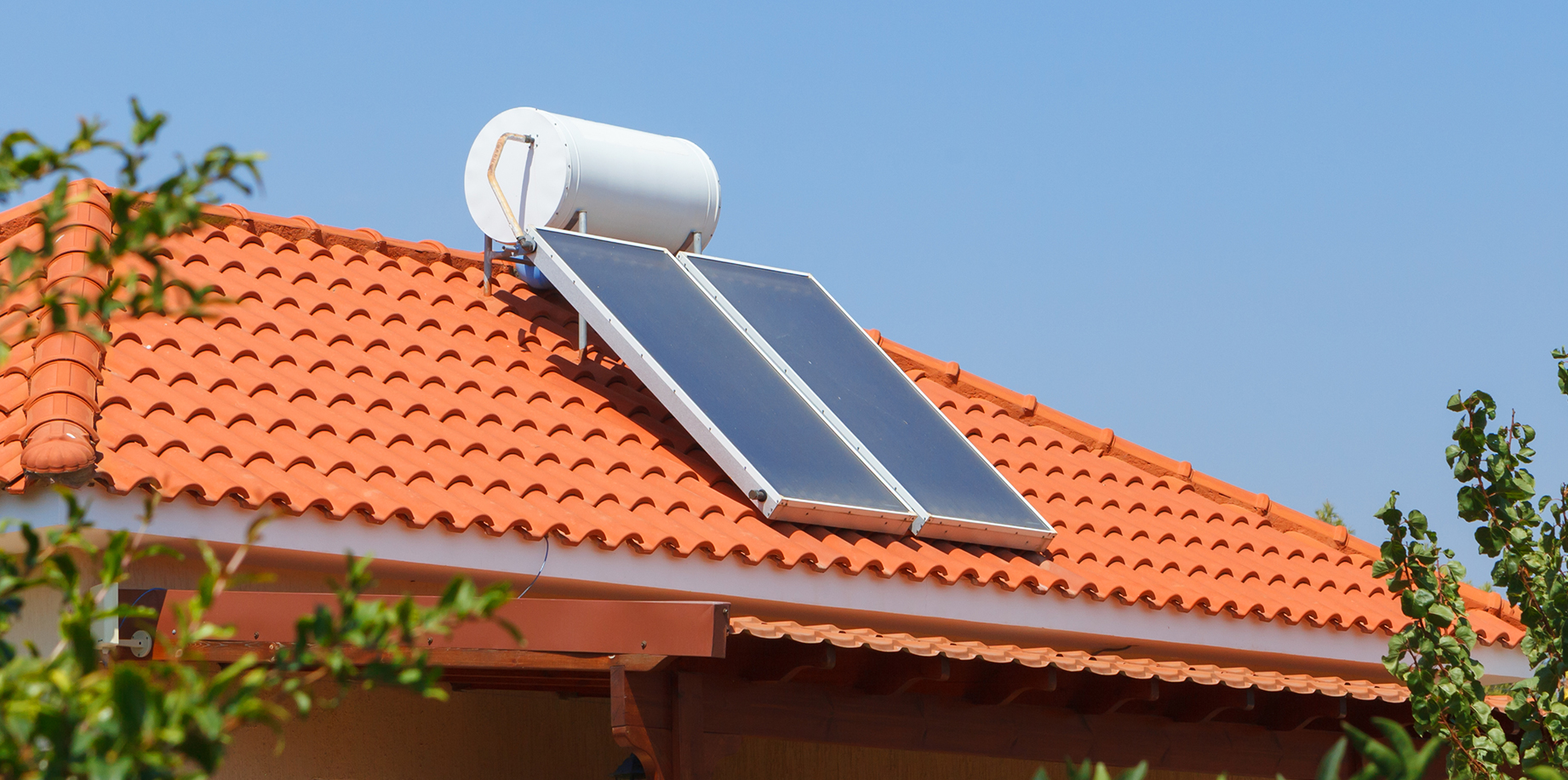
Image source: ensia.com
However, to install a solar-powered water heater it is mandatory to live in an area where the sunlight is intensive. They are not very efficient especially in places that receive a lot of snow since the snow hinders the functions of the solar panels. You should also note that some types of solar water heaters do not work strictly on solar energy, which means you have to provide for electricity or gas.
3. Gas
The first thing which you should know about gas hot water systems is that they must be installed outside the house because they release emissions. The venting requirements imply that they possess moderate acquisition cost, in addition to reasonable installation fees. All the same, most professionals tend to agree with the fact that if one is residing in very cold areas, then the gas water heater systems are not very efficient.
:max_bytes(150000):strip_icc()/reasons-gas-water-heater-not-working-5212987-hero-fe6b82a59053421c88b7d13ea311d3c5.jpg)
Image source: thespruce.com
a) Condensing water heater
The condensing water heater makes use of the waste fumes of the natural gas system of the home. Because they operate on gas, condensing water heaters are best suited in homes that use gas for heating purposes.
They are energy efficient as they do not use electricity and they assist in controlling on expenses such as utility bills. Nonetheless, condensing water heaters are only available in large sizes and are also expensive.
4. Heat Pump (Hybrid water heater)
This heat water system is quite distinct from an electric one, and can actually use less than 70% electricity. The whole system is quite straightforward on the way it operates. Here you have a refrigeration cycle that assists in extracting heat from the air.
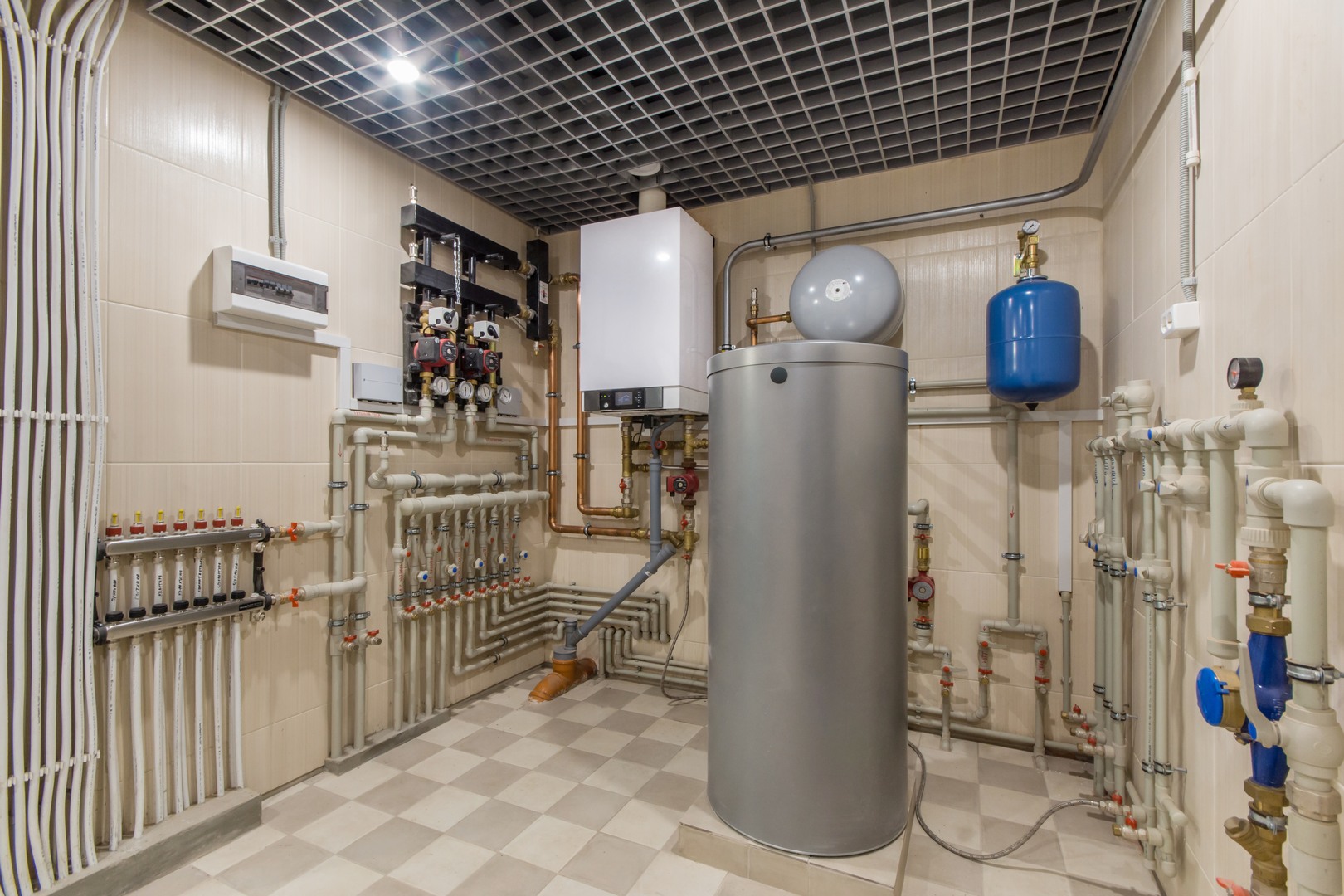
Image source: orangecountyplumbing.com
One of the parts of this system is the compressor which has a very important role here. It operates like an air conditioning system does. But, it is rather noisy so if you are the type that cannot cope with noise, then you should better stay clear of this one.
A hybrid water heater also has an insulated tank and the heat pump of this water heater is located on the top side of the water tank. A hybrid water heater is more expensive and also takes more space than a conventional tank hot water heater.
Benefits of Having a Hot Water System in Your Home
Apart from getting hot water whenever you want (that is quite obvious), hot water systems have the following major benefits:
a) Rebates from Government Bodies
One of the many compelling reasons why people should consider upgrading to solar water heating systems is because of the rebates that are in place. Both federal and state authorities across the world, including Australian governments, encourage citizens who opt for solar hot water systems. This is good for conserving energy expenses, reducing the use of fossil fuel, and emitting fewer negative impacts.
b) Great Space Saving in your Home
If you have seen any old movies of late, you might have come across huge boilers that were located deep down in basement areas. Not anymore. If you opt for continuous-flow hot water systems, you don’t need to keep that behemoth of a storage unit anymore. This helps you free up space that can be utilized to store something else in the house.
c) Lesser Greenhouse Emissions
In order of types that contribute most to greenhouse emissions, you have gas, electric, and solar. If you are using gas hot water systems, you are contributing negatively to global warming. On the other hand, if you use electricity, you are saving a ton on energy consumption. The best one of them all that does not lead to any greenhouse emissions is solar-powered systems.
What to Consider Before Replacing a Hot Water System
It is very important that you learn the signs that may indicate that you need to replace your hot water system. Perhaps, you currently do not use a water heating system, but still, you would like to set up this system in your house for the first time. Well, here are some things you should consider before making that order.
a) Energy Efficiency
Energy efficiency is one of the main considerations to make when replacing a water heating system. Get one that is energy-star certified to be sure that it is energy efficient.
If you are to shop for a gas-fired or oil water heater, check the energy factor (EF). It indicates how energy efficient the heater is, and this is for both tank and tankless heaters. The higher the energy factor, the more efficient it is.
b) Warranty
The warranty on water heaters is 3-12 years. In most cases, the devices with longer warranty periods will be more expensive as compared to those with shorter warrant periods.
In this case, it will be advisable to purchase a water heater that comes with a longer warranty. This means that even if you use it and it develops a fault the company can handle it and you will not end up spending more.
c) Capacity
While choosing a tank water heater you need to make sure that the tank size is suitable for your family. This is not only the capacity of the tank to hold the water but also it ability to heat the water quickly.
The storage capacity should be in accordance to the size of the family likely in the kitchen area. In the case of a large family, it may be advisable to choose a tank water heater with a higher capacity. Furthermore, the consumption of water also determines the capacity of the tank of the heater.
d) Drain Valves
Drain valves are outlets that are usually located at the base of a water heater. They assist in emptying the heater tank during the repair and maintenance processes. Also, these drain valves should be of brass not plastic as the plastic ones are very delicate and get damaged easily.
/replace-leaking-water-heater-drain-valve-2719059-05-f911dcbe3cd04317a4ad5c311c71ca44.jpg)
Image credits: thespruce.com
e) First-Hour Rating
First Hour Rating (FHR) refers to the volume of water a heater is capable of producing in the first hour that it is operating. When selecting a water heating system, it is recommended that its FHR be as near as possible to the amount of water needed by a family at some time in the day when all hot water points are required.
f) Tank or Tankless
When choosing your water heating system, would you prefer a tank or a tankless system? Convection tank water heaters are more familiar type. They also are cheaper initially but may lead to higher costs in the long run.
On the same note, while getting a tankless water heater is slightly expensive, it will not inflate your electricity bills like the conventional models. These are smaller in size and they do not store water. Tankless water heaters are not very suitable if your family is big as it might be needed to use several sources of warm water all at once.
g) Fuel
If you are planning to replace your old water heater, there is need to make sure that you identify the fuel type used by the water heater, so that you can buy the right one. While it is feasible to convert to another type of water heater, that can only be decided within the home. It can also have a high cost associated with it.
Different fuels available for use define the type of water heater that one should use in their home. It will also impact on heating cost, so do not forget to look at that as well.
h) Available Space
It may be tempting to think that your new hot water system is going to be the same size as the one which you had before. It may have altered significantly in shape and dimension over the years due to technology advancement including change in insulation and improvement in efficiency.
A hot water system can be installed under a bench, on a garage, or any part of the house. Ensure that the system you are purchasing will fit into your space irrespective of where the system connections are made.
i) Quality and Heating Elements
Should your water be hard, it is important to consider the material of your tank and the heating elements. The hardness of water is caused by the presence of calcium which, when heated, stick to surfaces and forms scales.
It can also cause blockage of water pipes and accumulation in home appliances including the heater. Hard water can also adversely affect the efficiency of the heater through corrosion thus shortening its lifespan.
Therefore, if you do not intend to invest on the best home water softener system, the water heating system should have corrosion-resistant material for reliability, efficiency, and longevity.
Challenges and Problems Regarding Your Hot Water Systems
In this section of the guide, we will help homeowners identify signs that can help them understand whether there is a problem with their hot water systems. However, you should also know that there are ways of fixing these problems related to electric hot water systems. Let us look at the major challenges and problems below-
a) Not Enough Water
Firstly, if too little hot water comes out of the system, you have a problem with your hands. It can be the result of a faulty pilot light or a thermocouple.
b) Stinky
Secondly, if the water that is coming out from the heater smells bad, it can be because of bacteria. Make sure that the water temperature always stays between 55-65 degrees.
c) Noisy System
Thirdly, if the system is making a lot of noise, it can be because of an increase in the sediment pile-up. Another reason can be that some internal parts have come loose.
d) Leakage
If you spot a leakage that usually happens with older systems, you need to call the experts and get it fixed. You can also look at getting a new system.
e) Slow Heating
You don’t know real frustration if you’ve never stood in your birthday suit as you wait for the water to heat, especially on a very chilly day. If you experience this problem for a couple of weeks, your system may need a repair or replacement.
f) The water is Too Hot
Getting too hot water could be a small issue, or it could mean your hot water tempering valve is faulty. If you try to turn the set temperature down and it doesn’t work, know that the valve is the issue.
g) Low-Pressure
Low pressure is among the common hot water system problems. In most cases, the problem is usually associated with the plumbing pipe sizes. Another issue could be that your system is not coping well with usage.
Frequently Asked Questions on Hot Water Systems
1. What are the three main types of hot water systems?
The main hot water systems include;
-
- Electric water heaters- electric heaters use high electric heating rods to heat water. These rods run vertically in the tank, and the water heats from the center and radiates outwards.
-
- Solar water heaters– a solar water heater uses energy to heat water. They use energy from the sun to heat water.
-
- Gas water heaters- these heaters heat water from a burner found at the bottom of a tank. The water heats from the bottom and rises to the top, where it is drawn by a tube. Gas heaters are more efficient than electric ones.
2. What is the most efficient type of hot water system?
An electric heat pump water heater is a more efficient option. It consumes less energy than an electric storage water heater.
3. What is the cheapest way to heat water?
The cheapest way to heat water is by using gas, followed by electricity, whereas propane is usually the most expensive.
4. How long should a water heating system last?
It is important to note that most high-quality hot water systems should last for between 10 and 15 years. However, the heating water systems that have high durability are not only those of good quality but also those that are frequently checked and maintained.
5. How long does it take a hot water heater to warm up?
A professionally installed gas water heater heats the water quickly. For an average 40-gallon heater, you will have your hot water within 30-40 minutes. Though for a larger tank, like 80 gallons or more, the water could get heated in 60-70 minutes.
6. How do I know when my water heater is full?
When your water tank is full, you will see the hot water tap running normally without residual air coming out.
7. What is the maximum temperature for hot water heaters?
140 degrees Fahrenheit is the maximum temperature for most water heaters. However, you can set it at 120 degrees if you feel it’s too hot at 140 degrees.
The Final Takeaway
A hot water system is one of the many essentials in a home that is so much overlooked in terms of its value until a fault is noted. As we pointed out at the beginning of this article, most people hardly give these machines the respect they deserve. Using the information provided in this beginner’s guide shall, therefore, help you understand some of the most important aspects of hot water systems.

